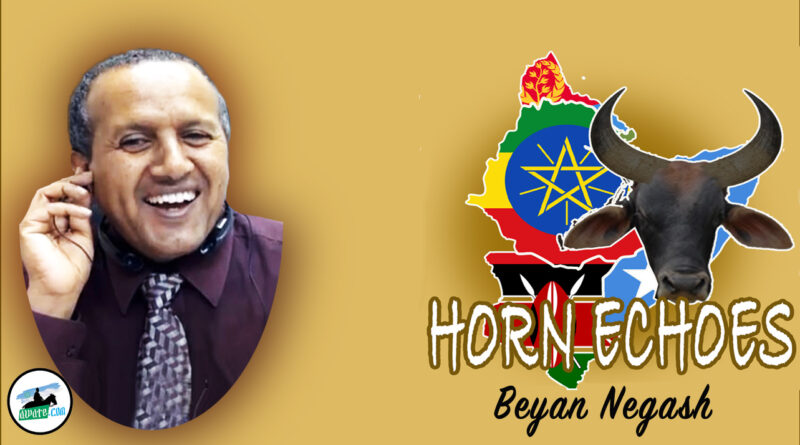Epilogue: History on Custodial Leash

There are moments in literary and historical critique when one feels the sharp tension between reverence and reckoning. To read Alemseged Tesfai’s five-page epilogue to his 490-page historical volume and offer a pointed critique is an undertaking that requires courage, clarity, and context. It is also an undertaking that, if not approached with the utmost care, risks committing the very sin it sets out to expose: flattening history, reducing complexity to editorial grievance, and eclipsing the burdens borne by those who write within authoritarian bounds.
The recent critique of Alemseged Tesfai’s epilogue opens a necessary conversation, one that touches the very marrow of how we remember, how we narrate, and how we contend with inherited truths. The article, written by Woldeyesus Ammar, a deeply respected veteran and author of Students in Struggle: 1955–1975, delivers a spirited and at times blistering response to the final five pages of Alemseged Tesfai’s sweeping 490-page history of Eritrea’s formative decades. And while the critique raises crucial questions, its rhetorical posture risks flattening the complexities of a difficult intellectual, political, and historical terrain.
First and foremost, the reverence is due to the two gentlemen. Both Alemseged Tesfai and Woldeyesus Ammar belong to a generation whose sacrifices shaped the very possibility of an Eritrean nation. That one of them returned and became part of the state’s sanctioned cultural infrastructure, while the other remained in exile as a trenchant voice of accountability, reflects the tragic bifurcation of our historical inheritance. One became an archivist within, the other a dissident from without. Both carry authority; both carry scars.
But authority is not absolution, and scars do not sanctify every word. The epilogue in question deserves scrutiny, not because of who wrote it, but because of what it dares and fails to say.
Woldeyesus Ammar rightly identifies the epilogue’s disproportionate focus on the ELF, with only cursory treatment of the EPLF and almost none of the post-independence regime it birthed. It is fair to ask why a document purporting to frame a “definitive history” would repeat familiar tropes of exclusion. And it is more than fair to question how such framing reinforces the ruling party’s long-standing project of historiographical dominance.
However, the critique errs in tone and method. To isolate five pages from a 490-page text and subject them to the weight of indictment is, at best, asymmetrical. Alemseged Tesfai’s volumes, while not above reproach, represent one of the most exhaustive Eritrean historiographies we possess in the post-independence era. His epilogue may be disappointing, but it is not all he has written, and it should not be read in isolation from his larger body of work. This is not to excuse his omissions but to situate them.
There is also a deeper question: can we, the children and students of that generation, ask for transparency, intellectual courage, and historical honesty from our elders, even those who suffered the heat of the trenches and the cold exile of displacement, without turning our critique into a tribunal? Can we offer correctives without eroding the reverence we owe those who came before us?
The answer, I believe, lies in tonal discipline and ethical framing. Woldeyesus Ammar, at moments, risks crossing that fragile threshold, not because the criticisms lack substance, but because they are delivered in a rhetorical register that feels more accusatory than inquisitive. The charge that Alemseged is now indistinguishable from the state’s ideological machinery may hold observational merit, but it fails to interrogate the conditions under which writing becomes possible, or impossible, within a regime that punishes memory itself. Memory is literally in custody in Eritrea.
Therefore, it is here where we must reckon with the dilemma of “the historian who stayed.” Those of us who write from abroad, unwatched, unperturbed, uncensored, and unbeholden to the state, we must ask: would our pens flow as freely if they came with the risk of arrest, silencing, or slow erasure? Would we write braver epilogues under the watchful eyes of a regime that keeps its own people on a short intellectual and historical leash? Would we write at all?
This is not a defense of state-sanctioned silence. It is a call for contextual critique. Writers like Alemseged may be operating within conditions we can theorize but not fully grasp. Their omissions are not innocent, but they may not be entirely autonomous either. If his epilogue reads like a PFDJ editorial, we must still ask: what happens to a historian’s voice when history itself is state property?
Woldeyesus Ammar’s critique is sharpest when it laments the lost chance to tell a fuller, fairer story of the liberation era. His disappointment, like that of many exiled readers, is not born of pettiness, but of yearning. A yearning for a historian who could have been a bridge between exile and interior, critique and continuity, memory and state. That Alemseged did not become that bridge is a legitimate wound.
But even as we critique, let us do so without hubris. Those who stayed paid in ways we, in exile, may never fully fathom. Those who left carry a different burden: the weight of unfinished homecomings, the guilt of survival, and the ache of dislocation. Both histories, of staying and of leaving, are archives under siege.
And so in closing, not with condemnation, but with an invocation. One epilogue cannot undo the volumes that came before it. But neither can it be exempt from our reading, our questioning, or our grief.
We are, after all, the inheritors of stories not yet safe, still orphaned. There are endless queries we must carry forward into our next books, our next protests, our next classrooms, and our next spirited arguments over tea or coffee or both. But not every elder may be ready to answer those queries, but if we ask them with compassion, we just might get answers, or at least a chuckle, a sigh, a smirk, or maybe even a guffaw that shakes off the dust of solemnity for a moment longer.
___________________________________
Editor’s note: Beyan Negash is the author of a forthcoming novel, “
I & Eye: The Mirror, Exile, & the River.”
|
|



Awate Forum